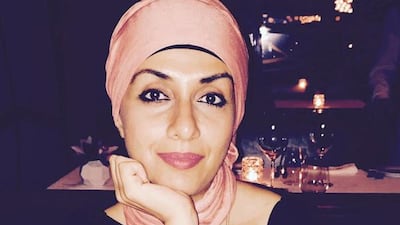Sofia Khan has just rejected her boyfriend Imran on account of a “hole-in-the-wall”. Unfortunately she’s not referring to an ever-handy cash point, but rather an improvised doorway between adjoining houses.
“But what normal human being would ask another human being to live with a cohort of mother, father, brother and sister-in-law with two children, complete with a sister and brother-in-law and three children next door, and a hole-in-the-wall joining the two houses? (Just writing that sentence about so many people confused me; imagine living with them),” she writes.
Love and living arrangements may come in all shapes and forms: there is living with the in-laws – Sofia’s older sister Maria is all set to move in with her after her wedding; and even polygamous marriage, the practicalities of which her friend Hannah has to navigate as she shares her new husband Zulfi with his first wife and their children; but Sofia absolutely draws the line at a “hole-in-the-wall”.
Sofia is a publicist at a large London publishing house (as was Malik, incidentally) and it turns out that her “HITW” situation, combined with the mere mention of Hannah the “co-wife”, is enough to have her bosses salivating at the idea of a real tell-all book about Muslim dating and marriage (as, apparently, were Malik’s own bosses at one point, although Malik never wrote the book).
At first Sofia isn’t exactly enthralled by the idea. “Who’d have thought my parents and the publishing world industry would share such similar interests,” she writes, but a surprisingly lucrative advance, combined with her gung-ho attitude, soon has her signing on the dotted line.
As such, in a crafty little twist on the traditional chick-lit format, Sofia Khan is Not Obliged is less an account of the heroine's pursuit of love, and more that of her search for inspiration for her book on the subject.
In fact, everything about this novel challenges expectations. Any preconceptions a Western reader might have of Muslim women as “other” – oppressed, unfulfilled and leading lives impossible to relate to – are immediately dismissed. Sofia and her friends are all women making active choices about how they want to live their lives.
Sofia’s parents are certainly keen for her to settle down, but they’re not exactly forcing the situation. There is plenty about her and her generation’s attitude to finding a partner that they don’t quite understand, perfectly illustrated in a blog piece Sofia writes about the problem of not clicking with people (the book is written in diary format with some blog posts). After hearing the term used over and over again, her mother finally asks: “What is this … click?”
“When our immigrant parents crossed an ocean,” Sofia explains to her reader, “forevermore, they also crossed certain boundaries of understanding, which, of course, they didn’t quite understand.”
But rather than becoming focal points of the like used in a previous array of novels dealing with the subject of second-generation immigrants struggling to make sense of their own identities, torn between their cultural heritage and that which they have grown up in, instead Malik uses such moments of confusion as comic devices.
Most refreshing of all, Sofia doesn’t need to undergo some sort of wild identity crisis before she gets her happy ending. She’s bored rather than bothered by people who are surprised she wears a hijab while no one else in her family does; even her mother doesn’t get it, convinced it will put potential husbands off – as Sofia jokingly points out, “What is the point of being a saint-like daughter to immigrant parents when my decisions are met with derision?”
And she takes it in her stride when her “makeshift prayer room” at work is suddenly turned into a medical room, complete with huge glass pane in the new door so she’s on show for anyone and everyone to see, “arse in the air”.
Perhaps not quite as pithy as Bridget Jones – a tighter editing could no doubt have cut a quarter of the text without any loss in terms of plot – but with its light, comic confessional tone, the diary entry format, and even some echoes between the plots, the comparison is inevitable – albeit without Bridget’s alcohol consumption or romances.
“Dating a devout Muslim is like dating someone back in the nineteenth century,” Sofia explains in one of the early chapters of her book. This alone should sell the book, but the opportune by-product is that readers will also discover a sharp, funny but ultimately very normal portrait of life as a British Muslim.
Lucy Scholes is a freelance journalist who lives in London.
thereview@thenational.ae

